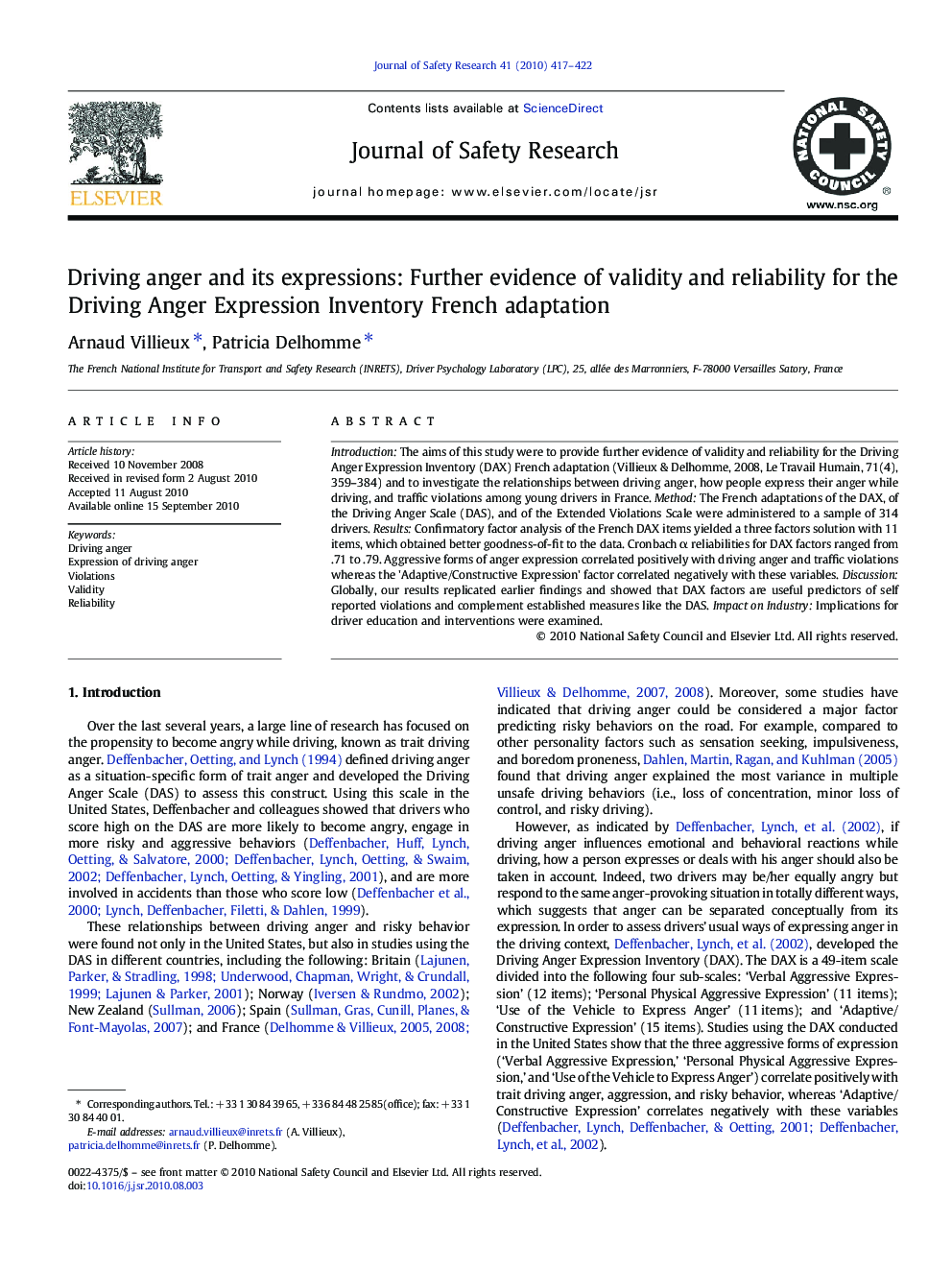| Article ID | Journal | Published Year | Pages | File Type |
|---|---|---|---|---|
| 587610 | Journal of Safety Research | 2010 | 6 Pages |
Introduction: The aims of this study were to provide further evidence of validity and reliability for the Driving Anger Expression Inventory (DAX) French adaptation (Villieux & Delhomme, 2008, Le Travail Humain, 71(4), 359–384) and to investigate the relationships between driving anger, how people express their anger while driving, and traffic violations among young drivers in France. Method: The French adaptations of the DAX, of the Driving Anger Scale (DAS), and of the Extended Violations Scale were administered to a sample of 314 drivers. Results: Confirmatory factor analysis of the French DAX items yielded a three factors solution with 11 items, which obtained better goodness-of-fit to the data. Cronbach α reliabilities for DAX factors ranged from .71 to .79. Aggressive forms of anger expression correlated positively with driving anger and traffic violations whereas the 'Adaptive/Constructive Expression' factor correlated negatively with these variables. Discussion: Globally, our results replicated earlier findings and showed that DAX factors are useful predictors of self reported violations and complement established measures like the DAS. Impact on Industry: Implications for driver education and interventions were examined.
Research Highlights► The original DAX (Driving Anger Expression Inventory) factor structure developed in the U.S. does not seem to be entirely applicable to our French sample. ► Aggressive forms of anger expression and traffic violations recorded were strongly and positively correlated together. ► Negative correlations were observed between ‘Adaptive/Constructive Expression’ factor and traffic violations. ► Using the vehicle as an instrument of anger expression was a major predictor of multiple traffic violations.
